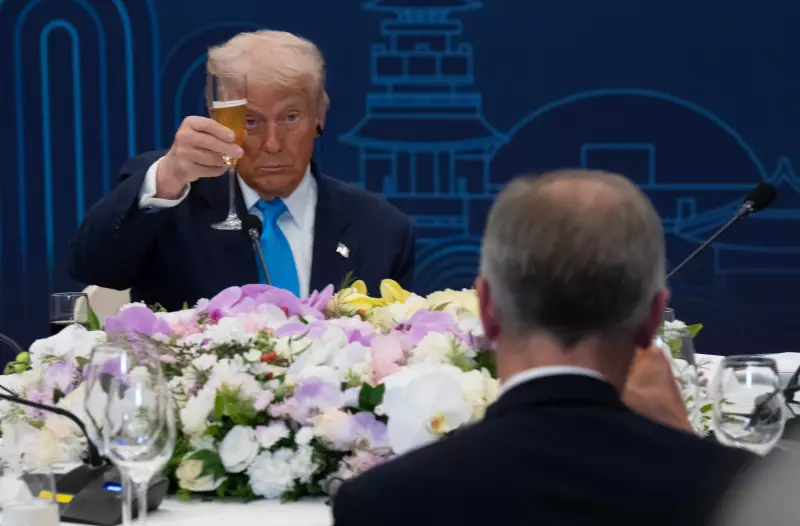
In a remarkable display of diplomatic theatre, three of North America's most prominent political figures found themselves sharing a table in Seoul this week. Prime Minister Justin Trudeau, former U.S. President Donald Trump, and former Bank of Canada governor Mark Carney attended an exclusive dinner hosted by South Korean President Yoon Suk Yeol, creating what observers are calling a "geopolitical spectacle."
The high-profile gathering occurred against the backdrop of escalating global tensions and shifting international alliances. President Yoon extended invitations to world leaders attending commemorative events in South Korea, but it was the North American contingent that generated the most buzz among political analysts.
A Rare Convergence of Political Heavyweights
The dinner brought together figures representing dramatically different political philosophies and governing approaches. Prime Minister Trudeau, leading Canada's Liberal government, sat alongside Donald Trump, the Republican frontrunner for the 2024 U.S. presidential election, while Mark Carney—often mentioned as a potential future political candidate—completed the intriguing triad.
This unexpected convergence comes at a pivotal moment in international relations, with ongoing conflicts in Ukraine and the Middle East, as well as growing concerns about economic stability worldwide.
Carney's Continued Presence on World Stage
Mark Carney's participation is particularly noteworthy given his transition from central banking to climate finance advocacy. The former governor of both the Bank of Canada and the Bank of England now serves as the United Nations special envoy on climate action and climate finance, positioning him at the intersection of global economics and environmental policy.
His presence alongside active political leaders fuels ongoing speculation about his potential future in Canadian politics, where he's frequently mentioned as a possible successor to Trudeau as Liberal leader.
Diplomatic Implications and Subtle Messaging
The seating arrangements and interactions at such high-level diplomatic events are never accidental. South Korea, navigating complex relationships with China, North Korea, and Western allies, clearly understands the symbolic importance of bringing together influential North American figures.
With Trump potentially returning to the White House after November's election, the dinner provided a valuable opportunity for all parties to take the temperature of what could become a reshaped international order.
While the exact substance of conversations remains private, the visual of these three powerful figures sharing a meal in Seoul will undoubtedly be analyzed by foreign policy experts for weeks to come, offering clues about the future direction of North American leadership on the world stage.





